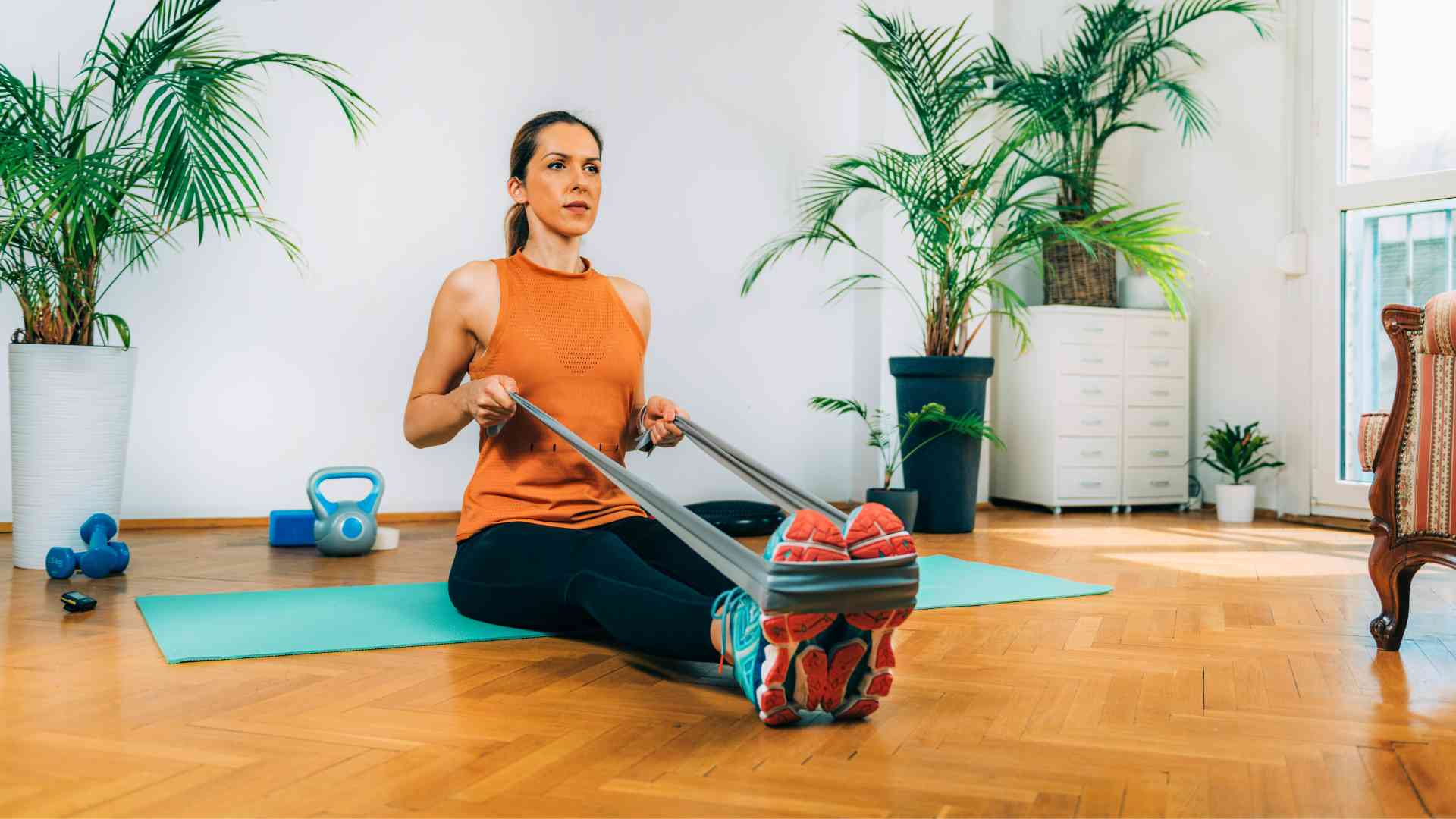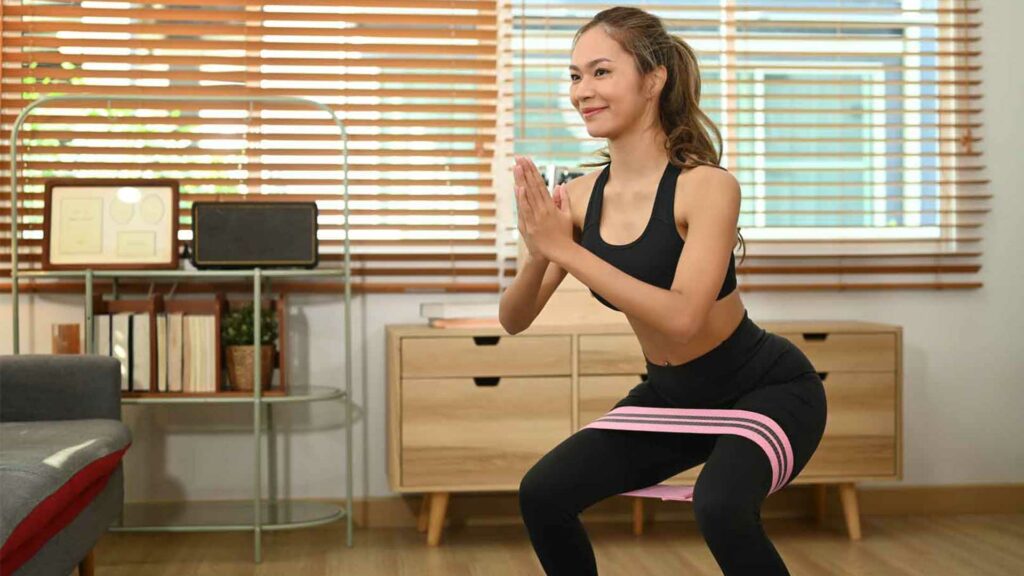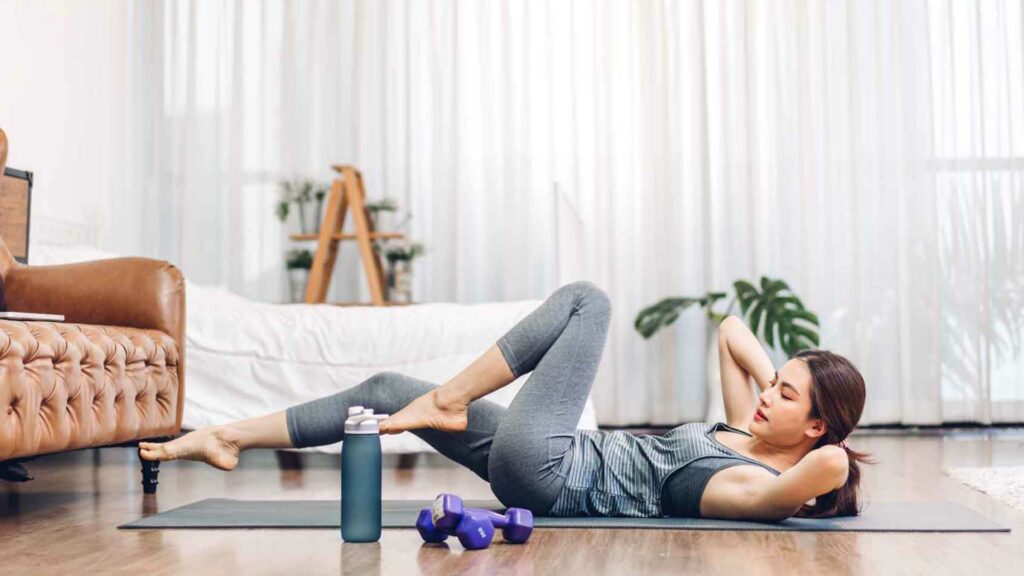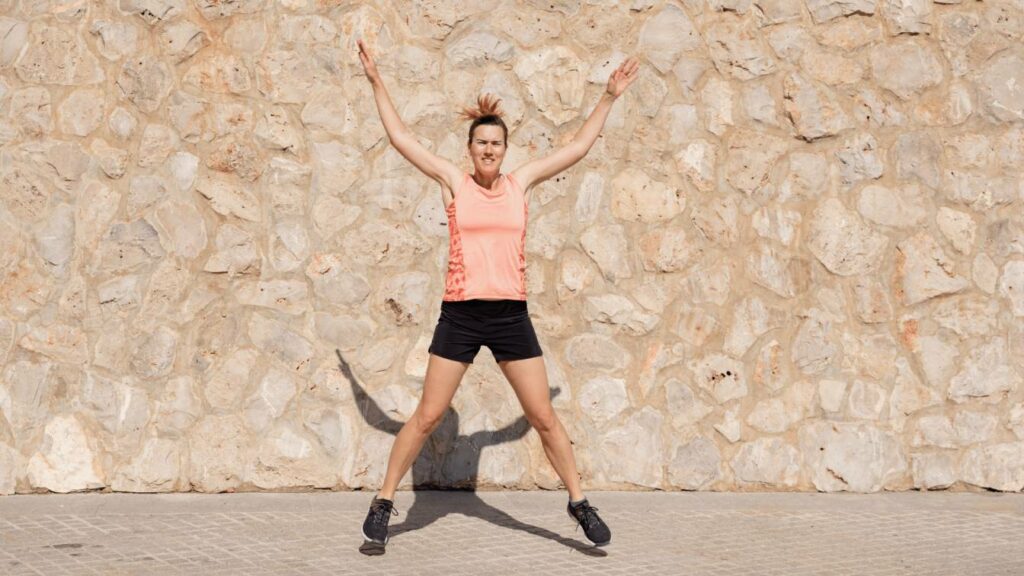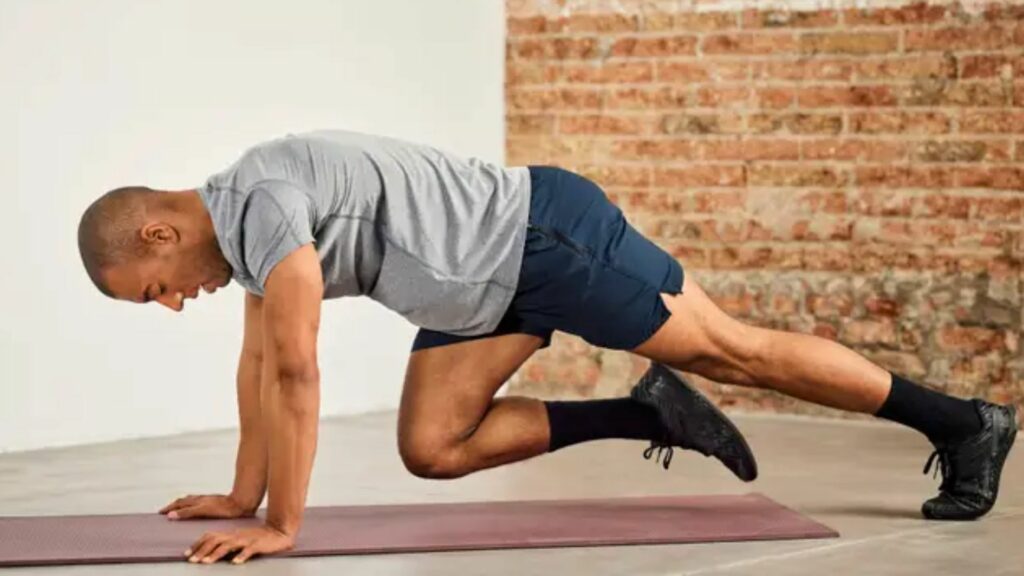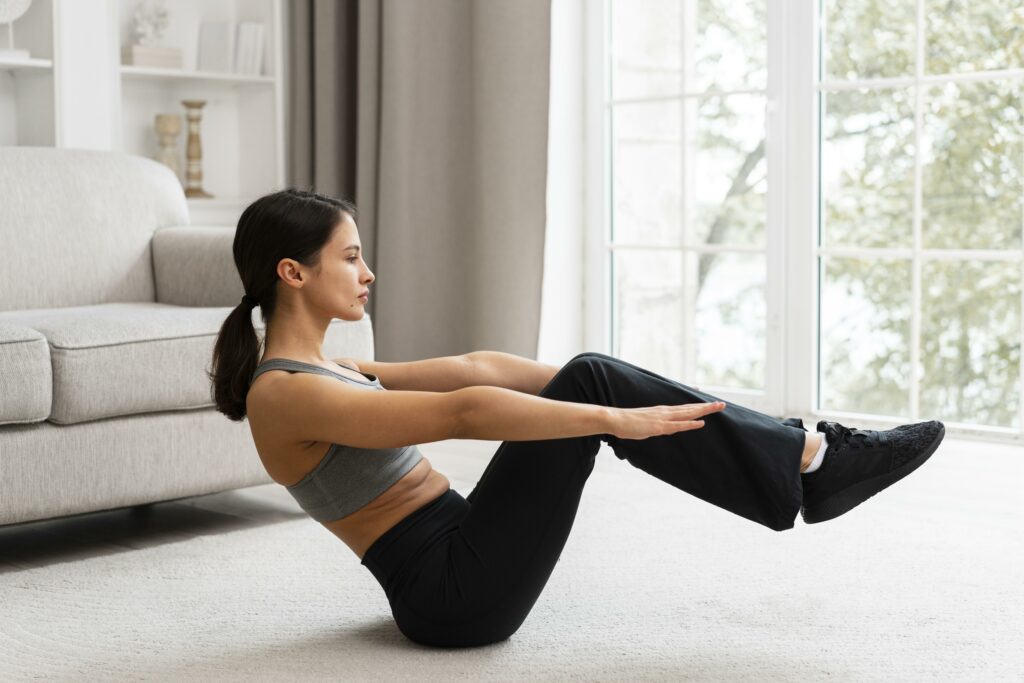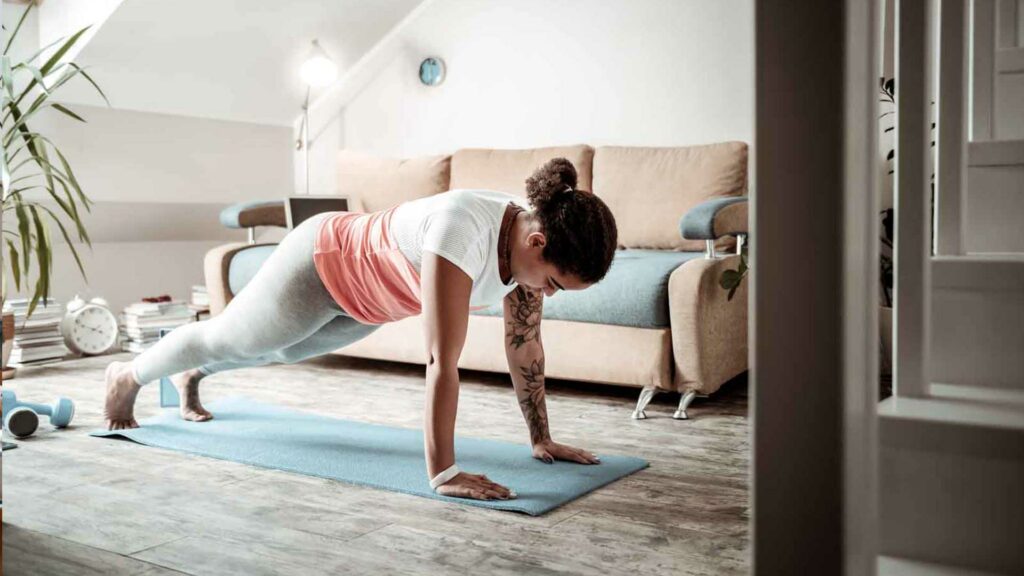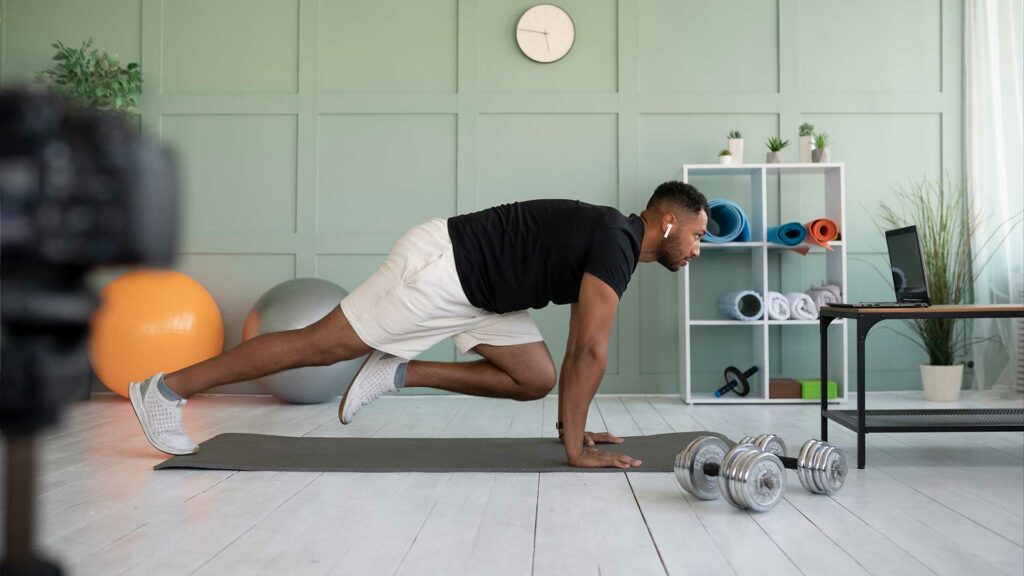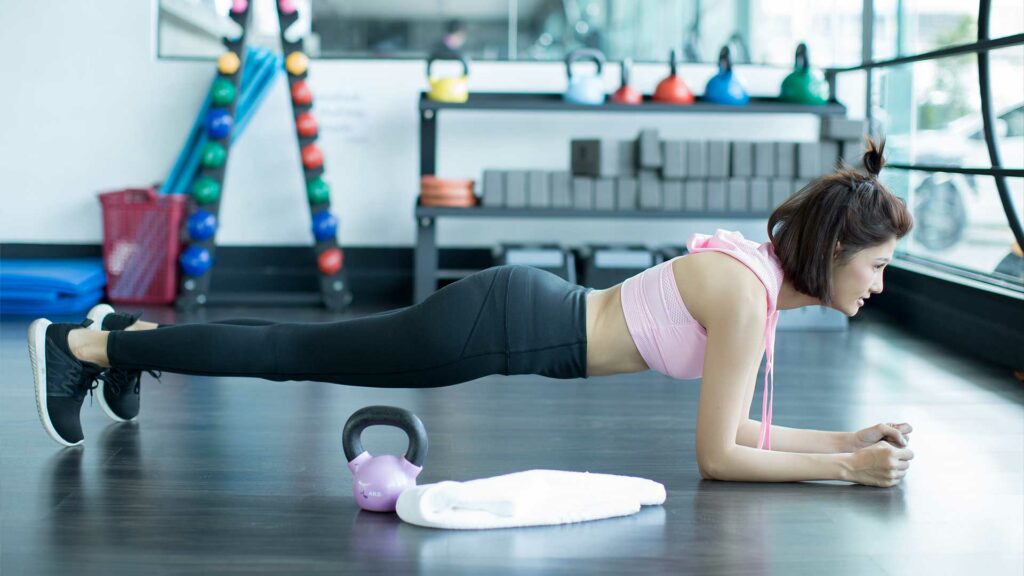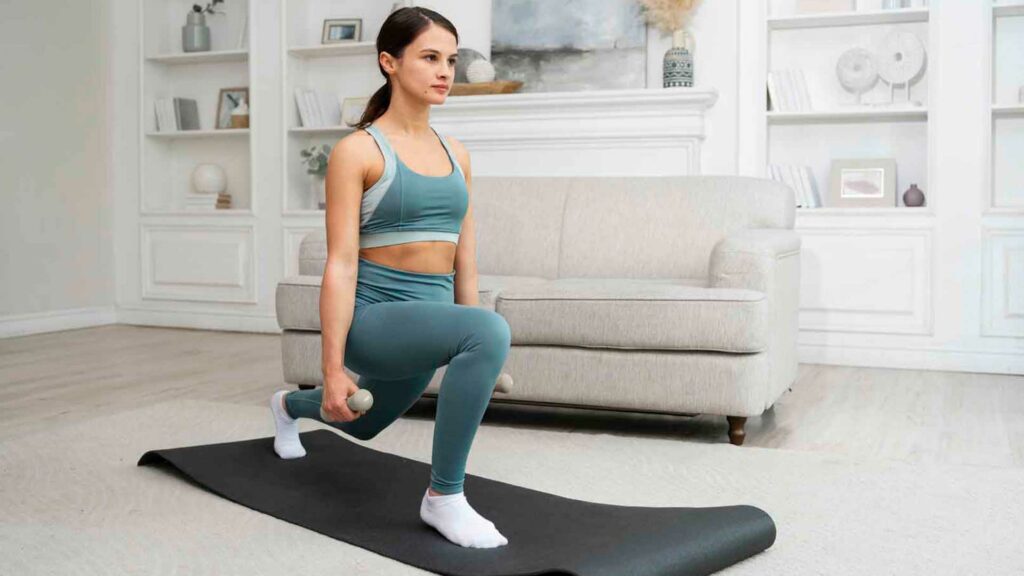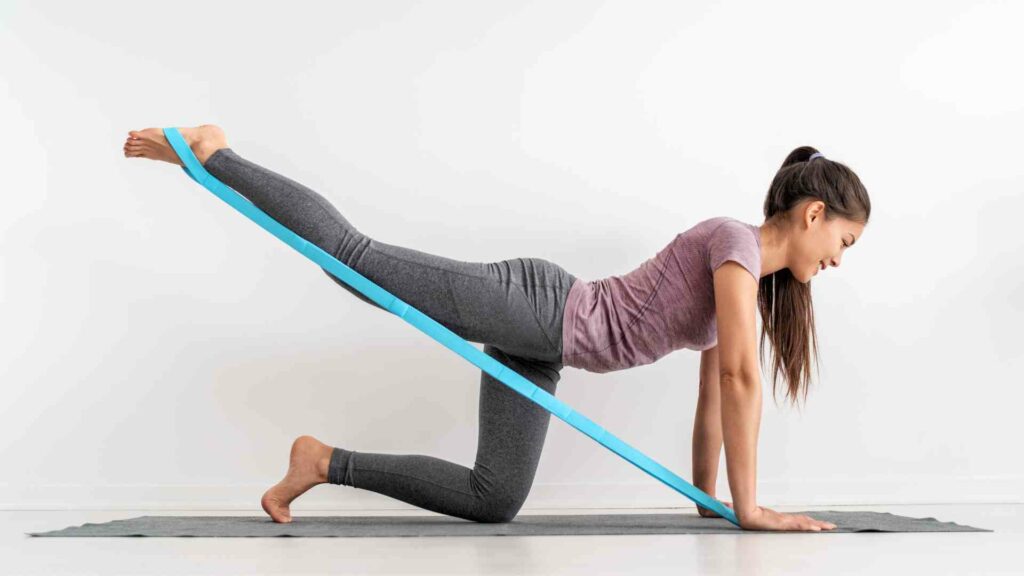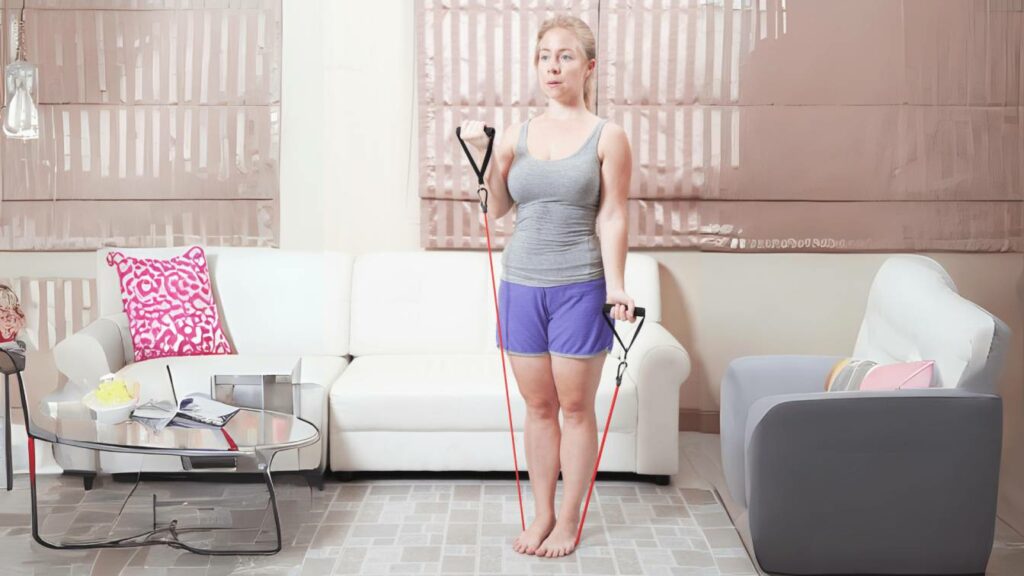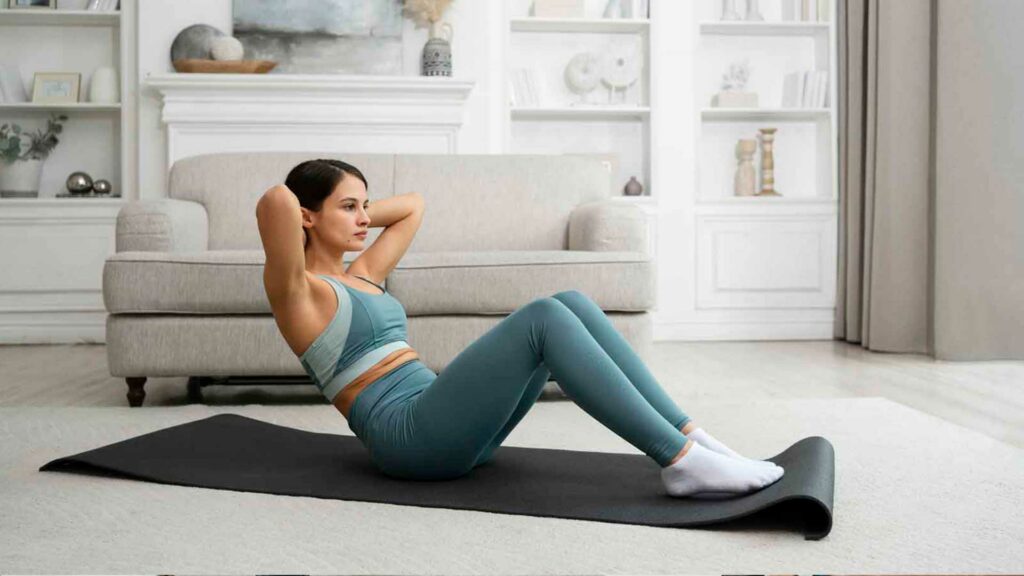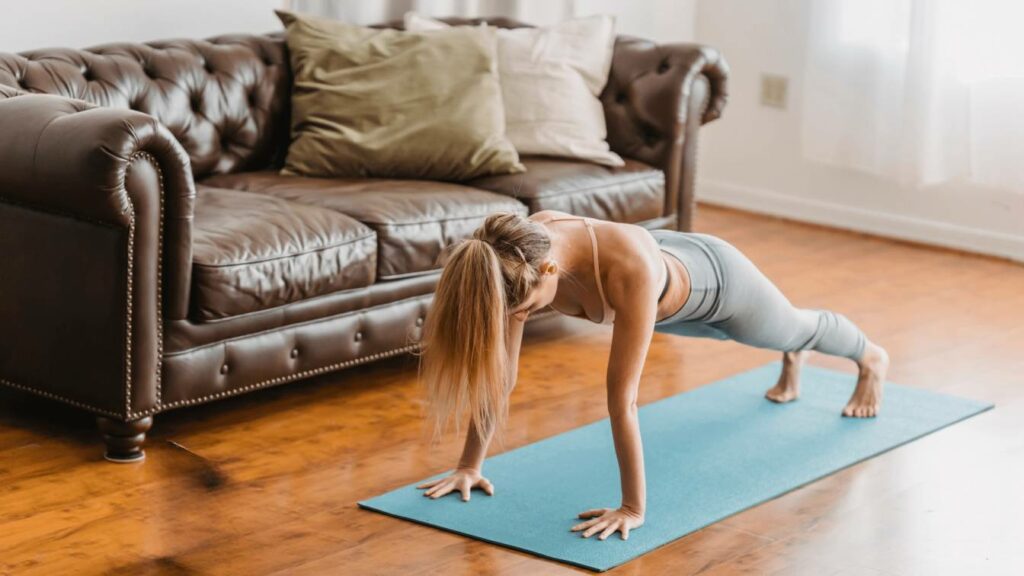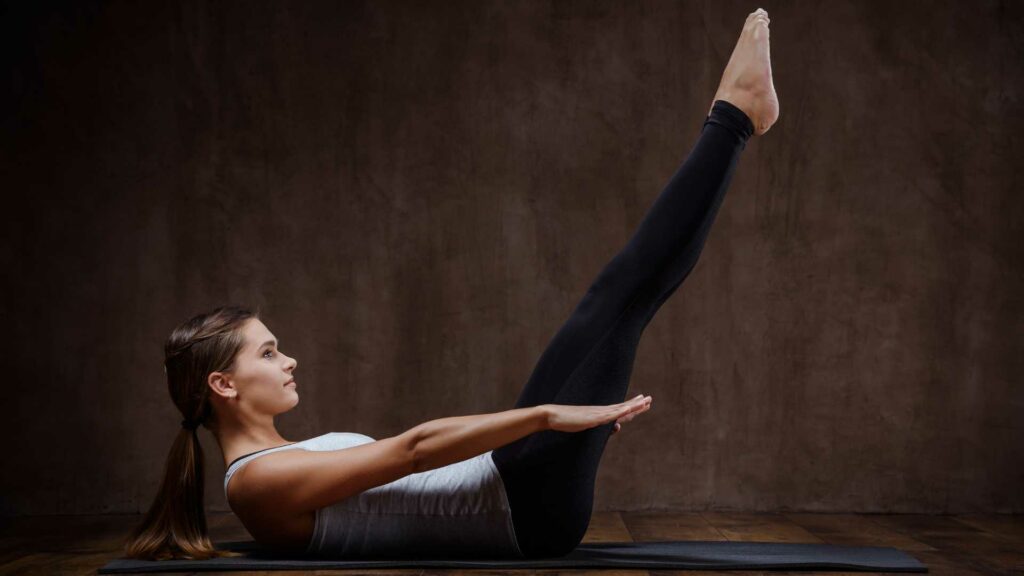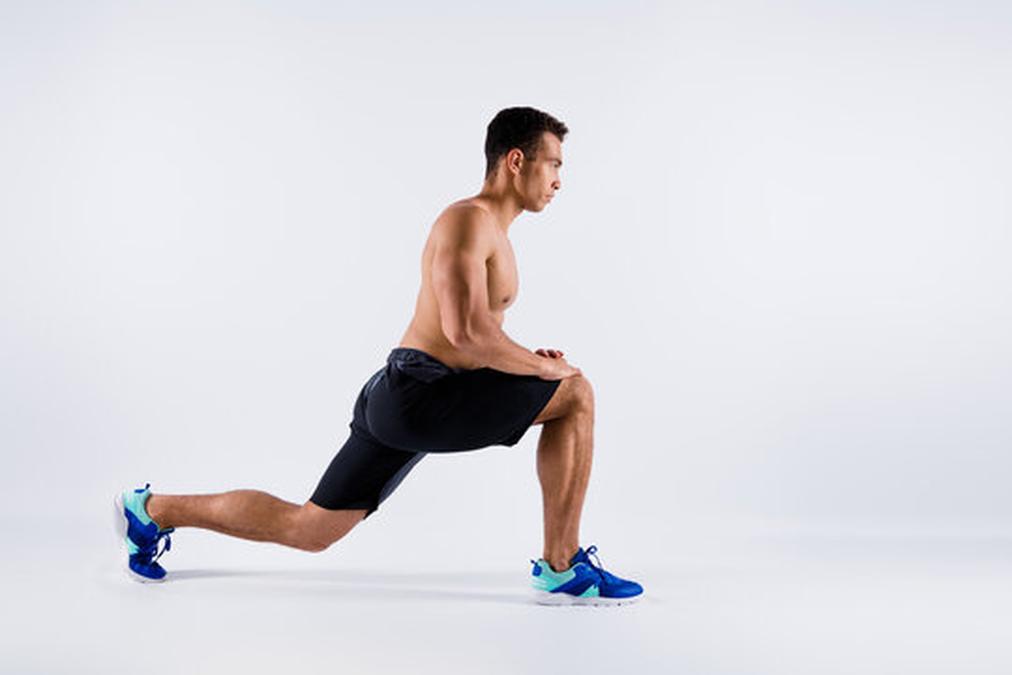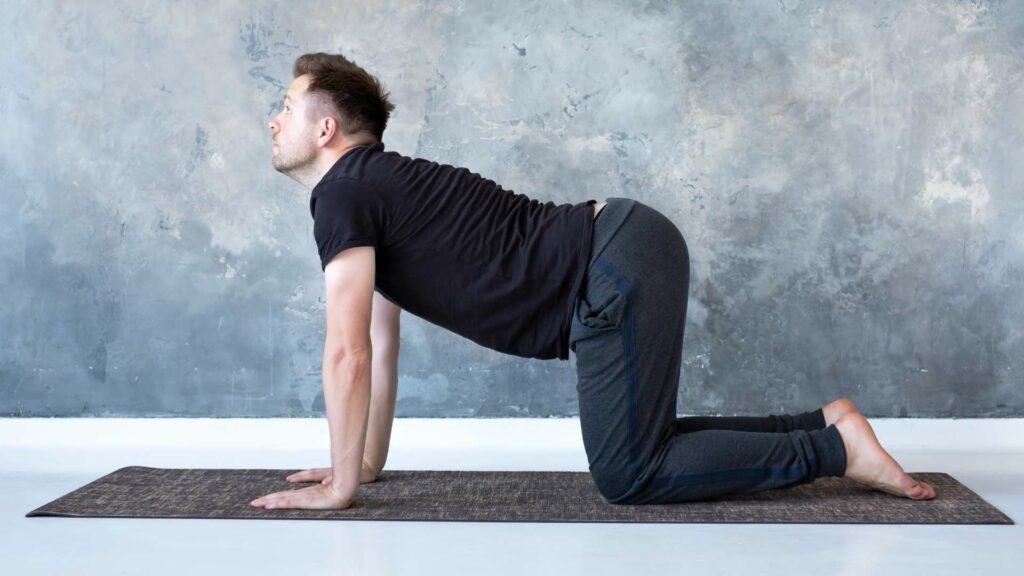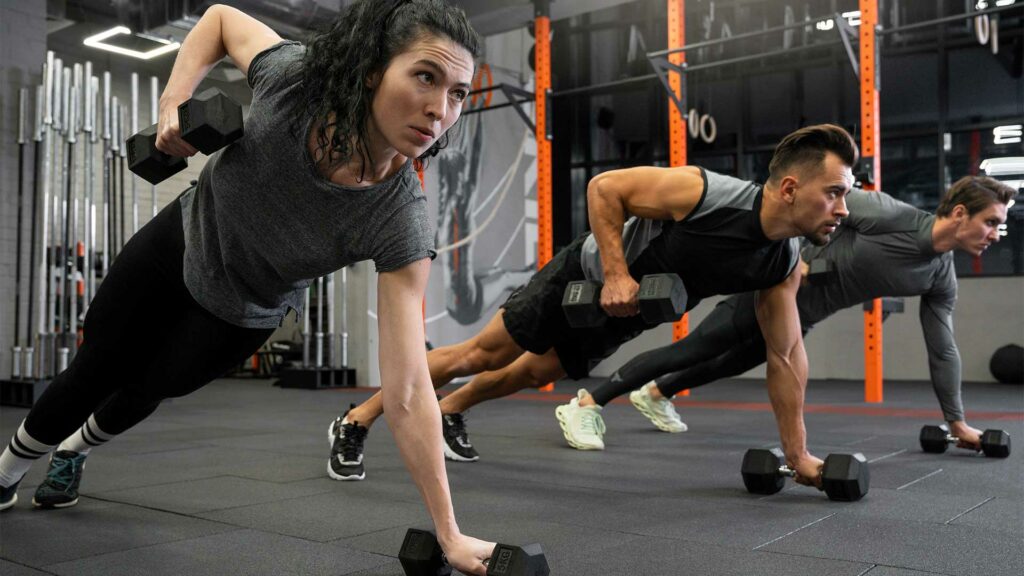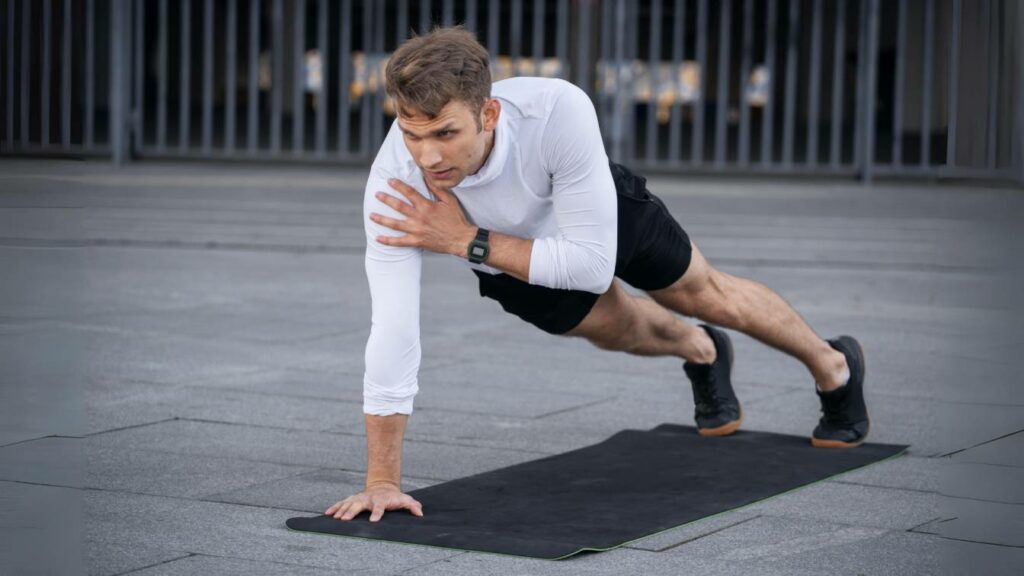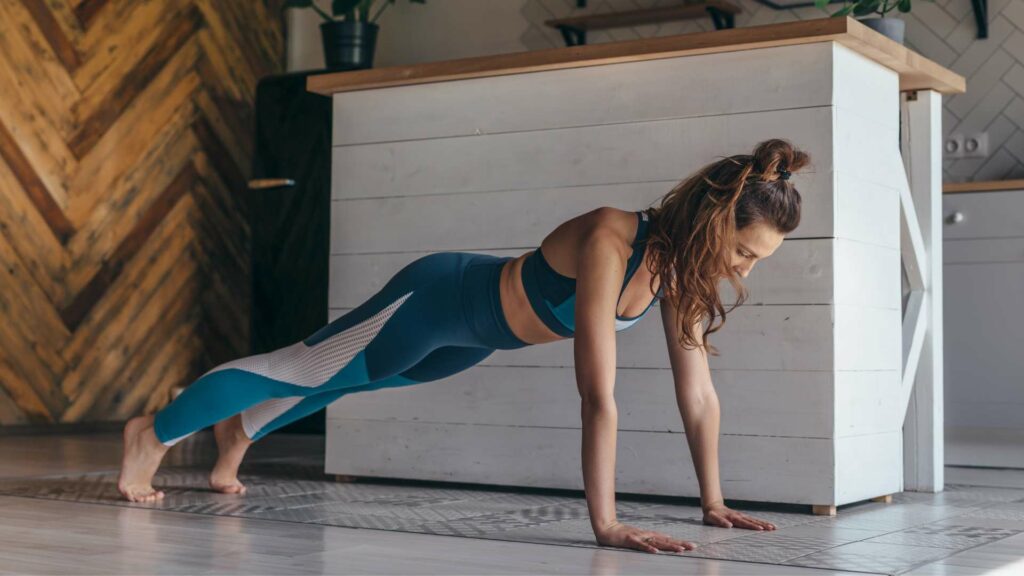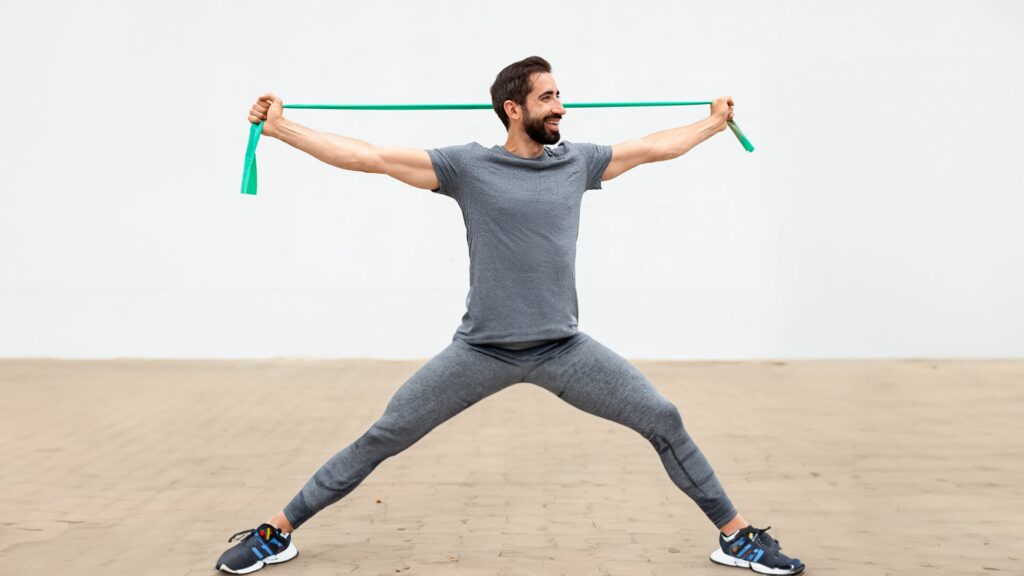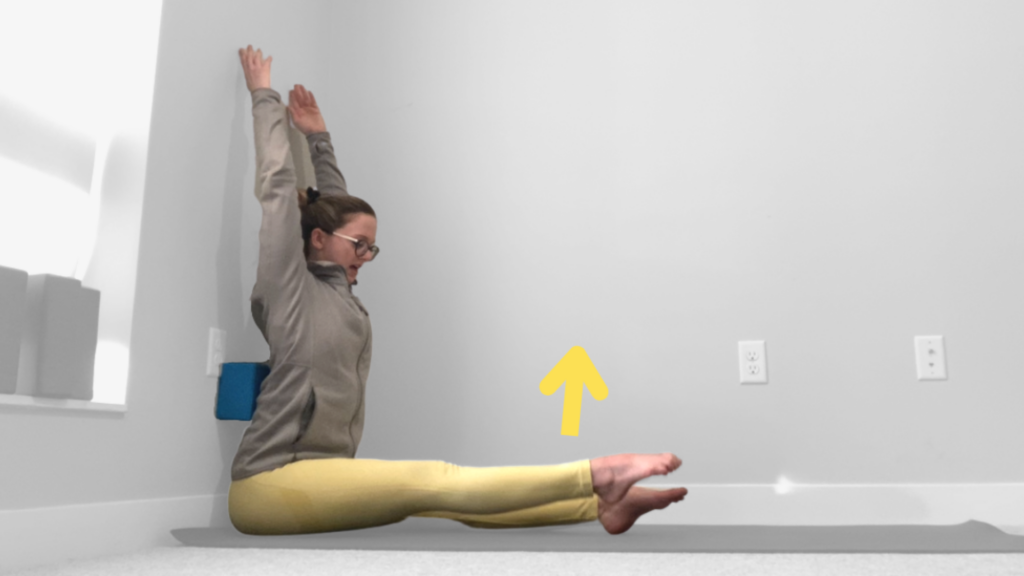If you’re looking to strengthen your back muscles and improve your posture, the banded seated row exercise is an excellent choice. Not only does it target the upper and middle back muscles, but it also engages the biceps and core. In this article, we’ll provide you with a comprehensive guide on how to perform the banded-seated row exercise, its benefits, variations, who can benefit from it, precautions, and tips.
What is the banded seated row exercise?
A. Definition
The banded seated row exercise is a resistance band exercise that targets the upper and middle back muscles, biceps, and engages the core. It is done by sitting on the floor, looping a resistance band around the feet, and pulling the band towards the waistline while squeezing the shoulder blades.
B. Muscles worked
The banded seated row exercise works several muscle groups, including:
- Latissimus dorsi
- Rhomboids
- Trapezius
- Biceps
- Core muscles
C. Equipment needed
To perform the banded-seated row exercise, you’ll need a resistance band. Resistance bands are affordable, lightweight, and portable, making them an excellent piece of equipment for home workouts or when traveling.
You can find more information on resistance band training in our guide to resistance bands training.
Merlin’s real-time feedback on form and posture
Merlin, your virtual personal trainer, can provide you with real-time feedback on your form and posture during the banded seated row exercise. Merlin can help you avoid common mistakes and ensure you’re performing the exercise correctly to maximize its benefits.
Banded Seated Row Exercise: Key Takeaways
- The banded-seated row exercise is a strength training exercise that targets the muscles in your back and arms using resistance bands.
- It can be performed with minimal equipment and is suitable for people of all fitness levels and goals.
- Proper form, appropriate resistance, and modifications for pre-existing conditions are essential for a safe and effective workout.
VIDEO
How to perform the banded seated row exercise?
A. Setting up for the exercise
- Sit on the floor with your legs extended.
- Loop the resistance band around the soles of your feet.
- Hold one end of the band in each hand.
B. Step-by-step instructions
- Sit up tall with your shoulders relaxed.
- Squeeze your shoulder blades together.
- Pull the band towards your waistline, keeping your elbows close to your sides.
- Slowly release the band back to the starting position.
- Repeat for the desired number of repetitions.
C. Common mistakes to avoid
Some common mistakes to avoid when performing the banded-seated row exercise include:
- Hunching your shoulders
- Arching your back
- Leaning too far forward or backward
- Using too much resistance
What are the benefits of the banded seated row exercise?
A. Muscle and strength gains
The banded seated row exercise is an effective way to build strength and muscle in your back, biceps, and core. By increasing your strength in these areas, you’ll improve your overall fitness level and athletic performance.
B. Improved posture and reduced risk of injury
The banded seated row exercise targets the muscles that are essential for good posture. By strengthening these muscles, you’ll improve your posture, reduce your risk of injury, and alleviate back pain.
C. Enhanced overall body composition
The banded seated row exercise is an excellent addition to any full-body workout routine. It helps improve your overall body composition by burning calories, building muscle, and boosting your metabolism.
D. Pairing with other exercises for a complete back workout routine
The banded seated row exercise can be paired with other exercises, such as burpees, jumping jacks, full-body workouts, or upper body power workouts, to create a complete back workout routine. This routine can help you achieve maximum gains in your back strength and overall fitness level.
What are the variations of the banded seated row exercise?
A. Grip variations
You can vary the grip of the resistance band to target different muscles. For example, a narrow grip targets the middle back muscles, while a wide grip targets the upper back muscles.
B. Resistance variations
You can vary the resistance of the band by using a different color or thickness of the band. Using a heavier resistance band will increase the difficulty of the exercise and provide a greater challenge.
C. Weighted variations
You can add weights to the exercise to increase the resistance and challenge your muscles further. You can hold a weight plate or dumbbell in each hand while performing the exercise.
D. Alternating arm variations
You can alternate pulling the resistance band with each arm to create an alternating arm variation of the banded seated row exercise. This variation helps to improve balance and coordination.
Who can benefit from the banded seated row exercise?
A. Fitness levels
The banded seated row exercise is suitable for all fitness levels, from beginners to advanced athletes. You can adjust the resistance of the band to match your fitness level and gradually increase the difficulty as you get stronger.
B. Goals
The banded seated row exercise is beneficial for anyone looking to improve their back strength, posture, and overall fitness level. Whether your goal is to build muscle, burn fat, or improve your athletic performance, the banded seated row exercise can help.
C. Pre-existing conditions
If you have pre-existing conditions, such as a back injury or chronic pain, you should consult a certified fitness trainer before performing the banded seated row exercise. They can provide you with modifications and ensure that you’re performing the exercise safely and correctly.
Precautions and tips for performing the banded seated row exercise?
A. Proper form
Proper form is essential when performing the banded seated row exercise. Be sure to keep your shoulders relaxed, your back straight, and your elbows close to your sides.
B. Appropriate resistance
Use an appropriate resistance level when performing the banded seated row exercise. Start with a lighter resistance band and gradually increase the resistance as you get stronger.
C. Consulting a certified fitness trainer
Consult a certified fitness trainer if you’re unsure how to perform the banded seated row exercise correctly or have pre-existing conditions that may affect your ability to perform the exercise.
D. Modifications for pre-existing conditions
If you have pre-existing conditions, such as a back injury or chronic pain, your fitness trainer can provide you with modifications to the exercise to ensure that you’re performing it safely and correctly.
| Questions | Answers |
|---|---|
| How often should I perform the banded seated row exercise? | 2-3 times per week, depending on your fitness level and goals. |
| Can I perform this exercise at home? | Yes, you can perform the banded seated row exercise at home. All you need is a resistance band and a flat surface to sit on. |
| What is the difference between the seated cable row and the banded seated row exercise? | The seated cable row is a gym-based exercise that uses a cable machine. The banded seated row exercise is a resistance band exercise that can be done anywhere. Both exercises target the back muscles, but the banded seated row exercise engages the core and biceps as well. |
Frequently Asked Questions (FAQ)
A. How often should I perform the banded seated row exercise?
You can perform the banded seated row exercise 2-3 times per week, depending on your fitness level and goals.
B. Can I perform this exercise at home?
Yes, you can perform the banded seated row exercise at home. All you need is a resistance band and a flat surface to sit on.
C. What is the difference between the seated cable row and the banded seated row exercise?
The seated cable row is a gym-based exercise that uses a cable machine. The banded seated row exercise is a resistance band exercise that can be done anywhere. Both exercises target the back muscles, but the banded seated row exercise engages the core and biceps as well.
Conclusion:
Congratulations! You have completed the banded seated row exercise with Merlin, your virtual personal trainer. We hope this comprehensive guide has been useful in improving your fitness level, posture, and overall well-being. Remember to incorporate this exercise into your workout routine and try the variations to keep challenging yourself. If you have any questions or concerns, don’t hesitate to consult a certified fitness trainer. Keep up the good work!
For more fitness exercises, check out our strength and conditioning calisthenics exercises, and learn how a fitness app with band movements can transform your health. If you’re interested in unlocking your potential with bodyweight exercises, check out our guide to bodyweight exercises.

